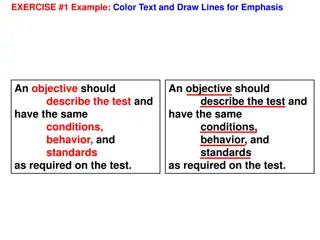
Early Japan: Geography, Culture, and Development
Explore the early history of Japan, from its unique geography to the development of the Ainu culture and the rise of the first emperors. Discover how Japan learned from China and Korea, leading to changes in language and societal influences. Dive into the origins of Japanese civilization and the key elements that shaped its early society.
Download Presentation

Please find below an Image/Link to download the presentation.
The content on the website is provided AS IS for your information and personal use only. It may not be sold, licensed, or shared on other websites without obtaining consent from the author. If you encounter any issues during the download, it is possible that the publisher has removed the file from their server.
You are allowed to download the files provided on this website for personal or commercial use, subject to the condition that they are used lawfully. All files are the property of their respective owners.
The content on the website is provided AS IS for your information and personal use only. It may not be sold, licensed, or shared on other websites without obtaining consent from the author.
E N D
Presentation Transcript
Geography and Early Japan Zoe Ellis 6th period
Geography Shapes Life in Early Japan The Islands of Japan are really just the tops of under sea mountains and volcanoes sticking up out of the ocean. Only about 20 percent of the land is flat. Because it is difficult to farm on mountain slopes, most Japanese people have always lived in those flat areas, the coastal plains. They learned to prepare all kinds of seafood , from eel to shark to octopus to seaweed. As a result, seafood has been a key part of theJapanese diet for over thousands of years.
The Ainu One culture that developed in Japan was the Ainu. Wherever they came from came from the Ainu spoke a language unlike any other language in eastern Asia. They also looked different from the other people of Japan
The First Japanese The people who lived south of the Ainu eventually became the Japanese. They lived mostly in small farming villages. These villages were ruled by powerful clans or extended families. Clan chiefs led their clans in rituals that honored their kami ancestors. Over time, these rituals became a central part of the traditional religion of Japan, Shinto.
The First Emperors The Yamato rulers claimed to have glorious family history. They believed they were descended from the most powerful of Kami, the goddess of the sun. By the 500's the Yamato rulers had extended their control over much of Honshu. Although they didn t control the whole country, Yamato clan began to call themselves the emperors of Japan.
Japan Learns from China and Korea Early Japanese society received very little influence from cultures on the Asian mainland. By the mid-500's, though, some Japanese leaders, thought that Japan could learn a great deal from other cultures. In particular they wanted to learn more about the cultures of China and Korea To learn what they wanted to know , the rulers of Japan decided to send representatives to China and Korea to gather information about their cultures. They also invited people from China and Korea to move to Japan.
Changes in Language The early Japanese didn't have a written language. Therefore, many learned to write in Chinese. It wasn t until about 200 years later that people devised a way of writing in Japanese. They used Chinese Characters to represent the sounds used in Japanese. For many years Chinese was the official language of Japan's goverment
Changes in Religion and Philosophy Prince Shotoku sent scholars to China to learn all they could about chinese society The ideas these scholars brought back changed Japanese society. For example they taught the Japanese about Confucianism Shotoku also worked to change peoples minds about Buddhism. Largely because of his efforts , Buddhism became very popular , especially among Japanese nobles.
Changes in Government Shotoku also wanted to change Japan's government to be more like China's He especially wanted Japan's emperors to have more power like China's emperors did. Afraid that they would loose power to the emperor , many clan leaders apposed Shotoku's plans. As a result, Japan's emperors gained little power.
Resources https://www.youtube.com/watch?v=HjjKVREZBQY http://education.seattlepi.com/did-geography-affect-early-china- before-silk-road-6908.html Ancient civilizations through the renaissance www.history.com https://www.youtube.com/watch?v=J6IrkUvJxio






















